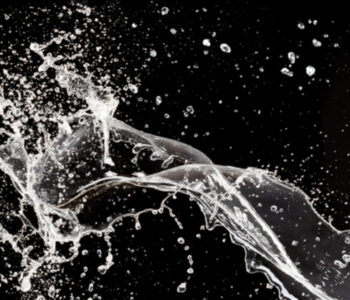In 30 seconds…
Whatever the cause of penis pain, it isn’t something any guy wants to experience. Uncertainty over the cause of your penis pain and the impact it has on your sex life can be a major cause of stress too.
Penis pain can be the result of a serious disease or disorder, like Peyronie’s disease, priapism, enlarged prostate, or even penile cancer. In this case, the pain is likely to grow and worsen over time, along with other symptoms.
If you have a sudden onset of penis pain, it is likely to be a result of some kind of infection — in many cases, this could be either an STI, a bladder infection, balanitis, or phimosis/paraphimosis. These can often be treated topically or with medications but can become more serious if not treated properly.
Trauma of the penis is perhaps the most obvious cause of penis pain, and we’re pretty sure you’d know it if you’d had an accident down there. While we’re all for a good time, it’s important not to do anything too reckless!
Pain in your penis is not something to put off seeking treatment for, no matter how embarrassing. Delayed treatment can make the problem worse or put you, and your partner’s health, at risk.
No one wants a sore penis. We’ve all winced, seeing someone get hit in the groin with a stray ball or punch, or on the receiving end of a misjudged trick shot. The thought of breaking your penis alone is enough to bring a tear to your eye.
So when you do suffer from any kind of penis pain, it’s time to take note. While some causes of penis pain are more serious than others, anything that feels wrong down there probably calls for medical attention. In this article, we’ll go through some possible causes of your penis pain.
9 Causes of Penis Pain
1. Peyronie’s Disease
Peyronie’s Disease, in many cases, has no known cause and is defined by an unnatural curvature of the penis both when flaccid and erect. The curve is caused by a thin strip of scar tissue, called plaque, that forms on the ridges along the top and/or bottom of the penis shaft.
The plaque restricts normal movement so is a direct cause of penis pain, as well as a great source of stress and anxiety for its sufferers. Peyronie’s disease can often result in erectile dysfunction, or at the very least, uncomfortable sex if you’re able to engage with your partner.
2. Priapism
Priapism is the medical term for having a prolonged, unwanted erection. An erection lasting 4 hours or more without sexual stimulation is classed as a medical emergency. Not something to brag about to your friends — no matter how impressive it might sound.
There are two types of priapism: low-flow and high-flow.
- Low-flow priapism is the type which causes penis pain; this is a recurring problem, caused by blood getting stuck in the penis. It can cause lasting damage to your penile tissue if not medically treated.
- High-flow priapism is usually the result of an injury which causes damage to the artery inside your penis, however, it’s generally a one-off occurrence.
Priapism is uncommon but is more likely to occur to those suffering from a blood disorder, with up to 35% of men with sickle cell anaemia also suffering from priapism. It can also be a serious side effect to misusing illicit drugs, alcohol, or erectile dysfunction medications
3. Enlarged Prostate
The prostate is something most of us have heard of these days, but many of us still aren’t quite sure what it is. Your prostate is a small, muscular gland which surrounds the urethra. It makes the fluid part of semen and controls your muscular ability to pee and ejaculate.
An enlarged prostate can be a cause of penis pain when you get older. Enlarged prostate — or Benign Prostatic Hyperplasia (BPH) — is most common in guys over the age of 50, with over 80% of prostate cancer in the over 65 population.
BPH occurs when the prostate cells multiply and the rapid growth squeezes onto the urethra. This makes it painful to pass urine (and you might see blood in it when you do). It may also give you a painful urge like you need to pee more often and can make it hard to fully empty your bladder when you do go.
It can also cause sex to be painful and you may experience penis pain during, and after, ejaculation. Not such a happy ending.
Thankfully, there are various natural remedies, as well as prescribed medications that can treat BHP, but limiting caffeine intake, doing regular kegel (pelvic muscle) exercises, and trying to reduce stress levels can all help improve the condition.
4. Penis Cancer
Thankfully, penile cancer is rare, with only around 1 in 100,000 men in America and Europe diagnosed every year. There are various types of cancer of the penis, but they generally all start in the skin, with unexplained penis pain and changes to the appearance of your penis being the first symptoms to show.
The main warning signs of penile cancer are a change in the colour of the skin on your penis, usually on the head. Developing a bumpy rash, blue/brown growths or a lump, along with pain in the head of your penis, swelling, redness, and bleeding are all telltale signs that something isn’t right.
Cancer of the penis is more common in men over 60, who have a history of smoking and have poor hygiene habits and multiple sexual partners. Men who are uncircumcised are more likely to have the HPV (human papillomavirus) infection which can also be a precursor to penile cancer, although this is not always the case.
Along with being rare, penis cancer has a relatively good survival rate; 68% of men survive penile cancer for 10 or more years, so don’t panic. If you have any of these symptoms, seek medical advice.
5. Sexually Transmitted Infections
This is probably every guy’s first thought when they experience penis pain — the dreaded sexually transmitted disease.
No one wants to admit to not being careful when it comes to who you have sex with, and how you do it. But if you’ve got a funny feeling down there and a guilty conscience, it could be an STI.
However, some STIs are quite slow at presenting their symptoms, and some will never show symptoms despite you testing positive.
If you are presenting symptoms of an STI, it’s likely to be one of the three most common sexually transmitted infections in men: chlamydia, gonorrhoea, or genital herpes.
- Chlamydia is the most common STI in the UK and, like gonorrhoea, is a bacterial infection which can be transmitted through vaginal, anal, or oral sex.
- They both have similar symptoms; the first you may encounter is pain while urinating, although unusual discharge and painful, swollen testicles can follow. Surprisingly, most men with gonorrhoea show no symptoms at all which means it can be spread quickly, and unknowingly, through unprotected sex.
- Meanwhile, a burning, itchy, sore rash of blisters is the most obvious form of pain on or around the penis when it comes to genital herpes. The symptoms can appear from two days to two weeks after infection, and can escalate to aching muscles in the lower back, buttocks and legs, a loss of appetite, fever, and tenderness in the groin area.
To avoid an STI, the advice is clear and simple. Use a condom, don’t sleep with multiple partners at the same time, and get yourself tested regularly. It’s the responsible thing to do!
6. Bladder Infection
A bladder infection or a UTI (urinary tract infection) is caused by bacteria entering the urethra. You can be at a higher risk if you’re already ill and have a weakened immune system, if you’ve had anal sex, or if you’ve had sex with someone who has an infection themselves.
Occasionally, an enlarged prostate can also lead to more frequent UTIs.
Along with penis pain, you’ll likely experience pain while urinating, blood in your urine, and feeling a painful urge to urinate more frequently. Not pleasant. Thankfully, antibiotics are all that’s usually needed to clear it up and get back to normal.
7. Balanitis
Balanitis is a painful condition that is caused by an infection under the foreskin on the head of the penis which causes redness, inflammation, rash, and general penis pain.
It’s more common in men who don’t properly wash and dry under their foreskin, which creates the perfect breeding ground for bacteria to form. It can also be a painful allergic reaction to certain soaps or perfumes, or a side effect to other conditions such as an STI, diabetes, a yeast infection, or obesity.
Treatment must be sought to avoid the condition worsening.
8. Phimosis and Paraphimosis
Phimosis and paraphimosis are serious conditions that result in pain in the head of the penis and the foreskin.
Phimosis is when the foreskin is too tight, so it can’t be pulled back from the head of the penis. More common in children, but also seen in younger adult males, this type of penis pain can be a result of untreated balanitis or penis trauma. Often, topical steroid treatments can help resolve the problem without too much invasive action.
Paraphimosis, however, is the medical term for the foreskin being pulled back from the head, then not being able to return to its normal position. This is a serious condition, as not only does it cause severe penis pain and swelling of the head of the penis, it can also affect blood flow to the penis, and your ability to urinate.
In some cases, surgery is required to relieve the pressure and return the foreskin to its normal placement. In some very serious cases, circumcision is the only option.
9. Trauma
The thought of causing trauma to your penis is enough to make your eyes water, but accidents do happen. And, yes, technically, it is possible to break your penis, which is, of course, a pretty obvious cause of penis pain.
Just like any other part of your body, your penis is susceptible to trauma. Be it a burn from an innocent spill while making a cup of tea, to an accident during some particularly exciting rough sex, there’s no judgement here.
The causes of freak penile trauma are varied and ought to be treated like injuries to any other part of your body. To reduce the risk of avoidable penis trauma, be mindful of the correct use of sexual aids if you use them to enhance your sexual experience, or help combat erectile dysfunction issues. Penis pumps may impact normal blood flow if used incorrectly or in conjunction with certain medications, and a penis ring can inadvertently cause pain at the base of your penis if worn for too long.

Keep those T levels up
The powerful threesome of Maca, Ginseng & Zinc is there to help you boost testosterone levels and, in turn, virility. Low T can be a libido killer.
Key Takeaways
If you’re experiencing penis pain of any kind, it’s always best to seek medical advice. While some causes of penis pain are easily remedied, some aren’t!
We understand it can be embarrassing to admit you have a problem down there, but any clinician will have seen it all before. Getting the right treatment will not only get your penis back to normal, but it will also make you feel a lot more like your usual, happy self too.












